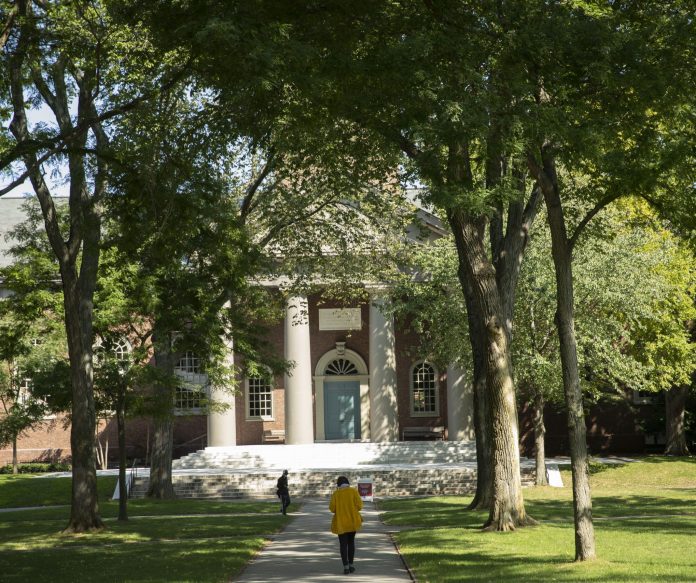Harvard College
Electrical Engineering has long played a critical role in undergirding innovations that improve the quality of life, support economic growth, and address societal problems. The curriculum of the Electrical Engineering S.B. emphasizes both depth and breadth within the sub-disciplines of electrical engineering. All students will specialize in electronic circuits and devices while being provided the opportunity explore signals and systems theory, control systems, robotics, optoelectronic devices, integrated circuits, energy systems, computer vision, electronic materials, computer software and hardware, as well as mechanical, biological, and environmental systems. Through this coursework students also gain experience in the engineering design process.
Harvard College
Students interested in Electrical Engineering may pursue the Engineering Sciences AB concentration with a specialization on the Electrical and Computer Engineering Track. Electrical Engineering plays a pivotal role in power and energy distribution, communications, and computation, even with the evolution of power-carrying channels from metal cables to nanowires or optical fibers; networks of communications from wires to wireless to neurons; and basic electrical switches from vacuum tubes to transistors to carbon nanotubes. The curriculum emphasizes depth and breadth within EE sub-disciplines. Students specialize in electronic circuits and devices, with the opportunity explore signals and systems theory, control systems, robotics, optoelectronic devices, integrated circuits, energy systems, computer vision, electronic materials, computer software and hardware, as well as mechanical, biological, and environmental systems. Students are also eligible to apply for an A.B./S.M. degree program.
Harvard Kenneth C. Griffin Graduate School of Arts and Sciences
Harvard School of Engineering offers a Doctor of Philosophy (Ph.D.) degree in Engineering Sciences — Electrical Engineering, conferred through the Graduate School of Arts and Sciences. Electrical engineers at Harvard are pursuing work on diamond nanofabrication; quantum devices; integrated circuits for cellular biotechnology; millimeter-scale robots; hardware for machine learning; the optimization of smart power grids and other networked systems; disentangling brain signals and mapping brain circuits; distilling information from large stochastic datasets; and the fundamental limits of private information sharing.
